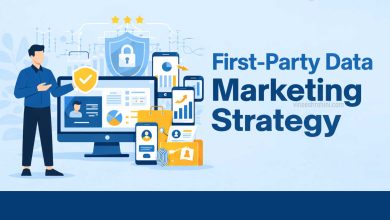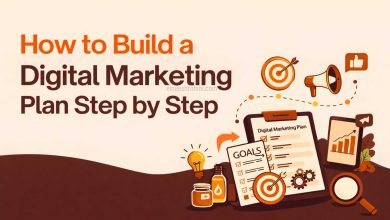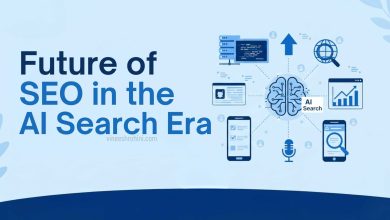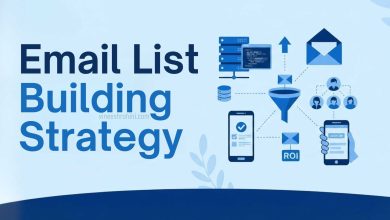SEO vs PPC: Which Digital Marketing Strategy is Right for Your Business ?
Search Engine Optimization (SEO) and Pay-Per-Click (PPC) advertising are two of the most widely used and effective digital marketing strategies today. Both aim to attract more traffic and potential customers to a website, but they use different approaches and have unique benefits and drawbacks. In this article, we will discuss SEO and PPC in detail, compare and contrast their features, and evaluate their effectiveness in achieving marketing goals.
SEO Definition and Benefits
SEO is the process of optimizing a website and its content to rank higher in organic search engine results pages (SERPs) for specific keywords and phrases. The ultimate goal of SEO is to increase the visibility and credibility of a website, drive more traffic, and generate leads and conversions. SEO can be divided into on-page and off-page optimization, which include technical and content-related factors, such as site structure, meta tags, backlinks, keywords, and user experience.
One of the main benefits of SEO is that it is a long-term, sustainable strategy that can provide continuous traffic and ROI over time. Unlike PPC, SEO does not require constant investment in ads or bidding, but rather focuses on creating quality content, optimizing the website’s performance, and building a strong online reputation. SEO also has the potential to generate more clicks and organic traffic than PPC, as users tend to trust and click on organic search results more than paid ones.
PPC Definition and Benefits
PPC is a form of digital advertising where advertisers pay a fee each time a user clicks on their ads, which are displayed at the top or bottom of SERPs or on other websites and social media platforms. PPC ads can be targeted to specific demographics, locations, interests, and devices, and can be customized in terms of ad copy, images, and landing pages. PPC platforms such as Google Ads, Bing Ads, and Facebook Ads use an auction-based system where advertisers bid on keywords and ad placement, and compete with other advertisers for ad space.
One of the main benefits of PPC is that it is a fast and flexible strategy that can generate immediate traffic and results, especially for time-sensitive or seasonal campaigns. PPC also allows advertisers to have more control over their ad campaigns and budget, as they can set daily or monthly spending limits, adjust bids and targeting, and track conversions and ROI in real-time. PPC can also be used in combination with SEO to complement and enhance its effectiveness, by targeting high-intent keywords, testing ad copy and landing pages, and retargeting previous visitors.
SEO vs PPC: Comparison and Contrast
While both SEO and PPC aim to increase website traffic and conversions, they differ in several key aspects, such as cost, time, control, competition, and effectiveness. Let’s examine each of these factors in more detail:
- Cost: SEO is generally considered a more cost-effective strategy than PPC, as it does not require direct payments to search engines or platforms. However, SEO may require significant investments in content creation, website optimization, and link building, which may require time, resources, and expertise. PPC, on the other hand, requires direct payments to the platform or search engine, which can vary depending on the bid, ad placement, and competition. PPC costs can add up quickly, especially if the campaign is not optimized or targeted effectively.
- Time: SEO is a long-term strategy that may take several months or even years to achieve significant results, especially for competitive keywords and industries. SEO requires continuous effort and optimization, as search engine algorithms and user behavior change over time. PPC, on the other hand, can generate immediate results, as ads are displayed as soon as the campaign is launched. However, PPC campaigns also require continuous monitoring and optimization, as ad performance and competition can fluctuate daily.
- Control: SEO does not offer as much control over search engine results as PPC does over ad placement and targeting. SEO relies on search engine algorithms and user behavior, which can be influenced but not controlled by the website owner or marketer. PPC, on the other hand, offers more control over ad targeting, bidding, ad copy, and landing pages, as well as the ability to pause or adjust the campaign at any time.
- Competition: SEO and PPC face different types of competition. SEO faces competition from other websites and content creators who are targeting the same keywords and phrases, and may use similar or better optimization tactics. PPC faces competition from other advertisers who are bidding on the same keywords and ad space, and may have larger budgets or higher ad quality scores. Both SEO and PPC require competitive analysis and continuous optimization to stay ahead of the competition.
- Effectiveness: SEO and PPC have different strengths and weaknesses in terms of effectiveness. SEO is generally more effective for generating organic traffic and building long-term brand awareness and reputation, while PPC is more effective for generating immediate traffic, testing ad copy and landing pages, and targeting high-intent keywords and audiences. Both SEO and PPC can generate leads and conversions, but the conversion rate and cost per acquisition may vary depending on the industry, audience, and campaign goals.
Which Strategy is Better: SEO or PPC?
The answer to this question depends on several factors, such as the industry, competition, audience, budget, and marketing goals. SEO and PPC can both be effective strategies if used correctly and optimized continuously. However, each strategy has its own advantages and disadvantages, and may suit different types of businesses or campaigns.
For example, a new business or website may benefit more from PPC, as it can generate immediate traffic and test different ad copy and landing pages, while also building brand awareness and reputation through SEO. A more established business or website may benefit more from SEO, as it can generate long-term organic traffic and authority, while also using PPC for seasonal or targeted campaigns. A highly competitive or saturated industry may require both SEO and PPC to stay competitive and reach potential customers from different channels.
Conclusion
SEO and PPC are two of the most popular and effective digital marketing strategies, each with its own unique features and benefits. While SEO focuses on organic search engine optimization and long-term reputation building, PPC focuses on immediate paid advertising and targeted campaigns. Both strategies require continuous optimization, monitoring, and competitive analysis to achieve marketing goals and generate ROI. Choosing the right strategy depends on the industry, competition, audience, budget, and campaign goals, and may require a combination of SEO and PPC for maximum effectiveness.



